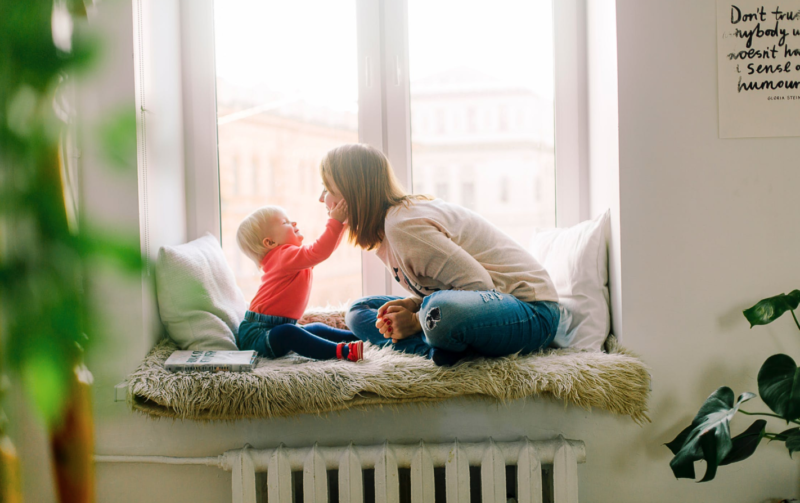Before you became a parent, you were your parents’ child. So when you were younger, do you recall observing what your parents were doing all the time? Most likely, no. In fact, probably not at all.
When you were a kid, you were just that, a kid. You had thoughts of a child and acted out what a child does. No serious thoughts, no deep reflections. You also saw things and, without intending to, you observed.
You have heard what adults often say about kids, “kids are great imitators”; and “imitation is a form of learning that human beings engage in more than any other creature,” says Jesse J. Prinz in his book, Beyond Human Nature: How Culture and Experience Shape our Lives.
Growing up, kids go through many interesting stages. At age 3 or 4, they become great copycats. A little boy that small, can mimic his dad, granddad, even his grandma in such unbelievably hilarious fashion. Kids have the uncanny ability to pick out the most catchy trait, mannerisms, and expressions of their subject of mimicry, which makes for an absolutely funny act when they are asked to replay them in their own funny way. Their audience is their own family, to their great entertainment, and most often to the chagrin of the mimicked family member. Kids at that stage and their funny abilities are a source of great fun and cheer within the family. These memorable episodes are often recalled and recreated at family gatherings so many years after when the erstwhile smart child imitators have become parents themselves. In a twist of fate, they have themselves become the subject of ribbings for their past comedic misdeeds against their own parents and grandparents when they were children.
At their teens, kids start to take stock of themselves. Hairstyles and clothes become a big part of growing up. Changes in their speech and language happen. Their language is distinctive and tends to be exclusive to themselves. Call it “teen speak,” if you will, which is some kind of language that they evolve among themselves. They have also become touchy, quite sensitive so that it is best for you not to meddle. At those times, it is sound advice to parents, to stay clear of their kids. You don’t want to be caught fussing over your teenage child.
Thankfully though, it is only a transition that they go through.
As they step into young adulthood, they somehow start to straighten things up– their manner of dressing, their communication, their practices in daily living, and they amazingly start speaking like proper adults. They start relating to adults and to the older generations before them. They find themselves and discover that they have the ability to keep up with their parents in speech, language, and life in general.
And so their childhood comes to pass and they become adults, just like you and I.
A kid grows in the environment they are born into. They see space, the sun, the trees, the animals, and, inside their home, they see objects, toys, friends, and family. All of the things kids see create an impression that creates familiarity, a certain recall that becomes facts of their daily lives. However, kids feel too. They hear, touch, smell, and taste. Almost always, the parents are the first ones that children get familiar with. In fact, parents are the first persons, kids mostly touch, smell, and talk to in the developing and early stages of their lives, at least before they get into their teen years.
Knowing and being consciously aware of this simple and natural phenomenon is a healthy parenting tip that you, as a parent, may be able to use to be the best You for your kids. You have to be the constant smell, touch, and voice that your child hears not only in their early stages but all throughout their life. Those basic natural human senses and functions are external but the effects that they have on your kids are internalized by the child and have a lifetime effect on them.
The functions of these senses get extended and they become the channels for learning other attributes of life, such as human values and virtues. Through their senses, you teach and they learn.
But in the nature of life, there is also what scientists call DNA. Certain behaviors that children and adults do, in general, are dictated by their genes. This was depicted in the popular movie of a fictional character, Forrest Gump. There, Forrest Gump never knew that he had a son. His childhood friend who he deeply cared for grew up to be an emotionally troubled woman. For a long time, he wanted to see her and when she came home one day, she stayed for some time and they developed a romantic relationship. One day, she had to leave again and she left him without saying goodbye. He never knew that that brief romantic interlude would bear him a son. When finally, he had the chance to see and be with the offspring the child turned out to be a young replica of himself. And then a scene was shown where Forrest and his son were seated beside each other while they watched the horizon, and they were viewed on the screen from behind them. At one moment in that pose, both father and son had to make a body movement, and with a singular uniform motion, father and son unconsciously tilted their heads in one direction and they looked like two poles tilting in unison, from left to right. That moment was pure DNA at work and not the influence of parents on children. The genetic makeup of humans tends to be a natural internal force that influences the general behavioral propensities of your child. But the constant gentle presence that you provide your child, as well as the positive imprints you leave them through their senses, may be more determinative of what type of person they will become in their life.
Many factors and events could come and go in your family’s journey and they could be life-changing forces. But your early influences using your touch, smell, and talk with each other would have a great lasting effect on your child that could define their lives forever in a positive way. That influence would chart the path of your child’s life journey as he/she becomes a young adult, adult, and as a future parent.

